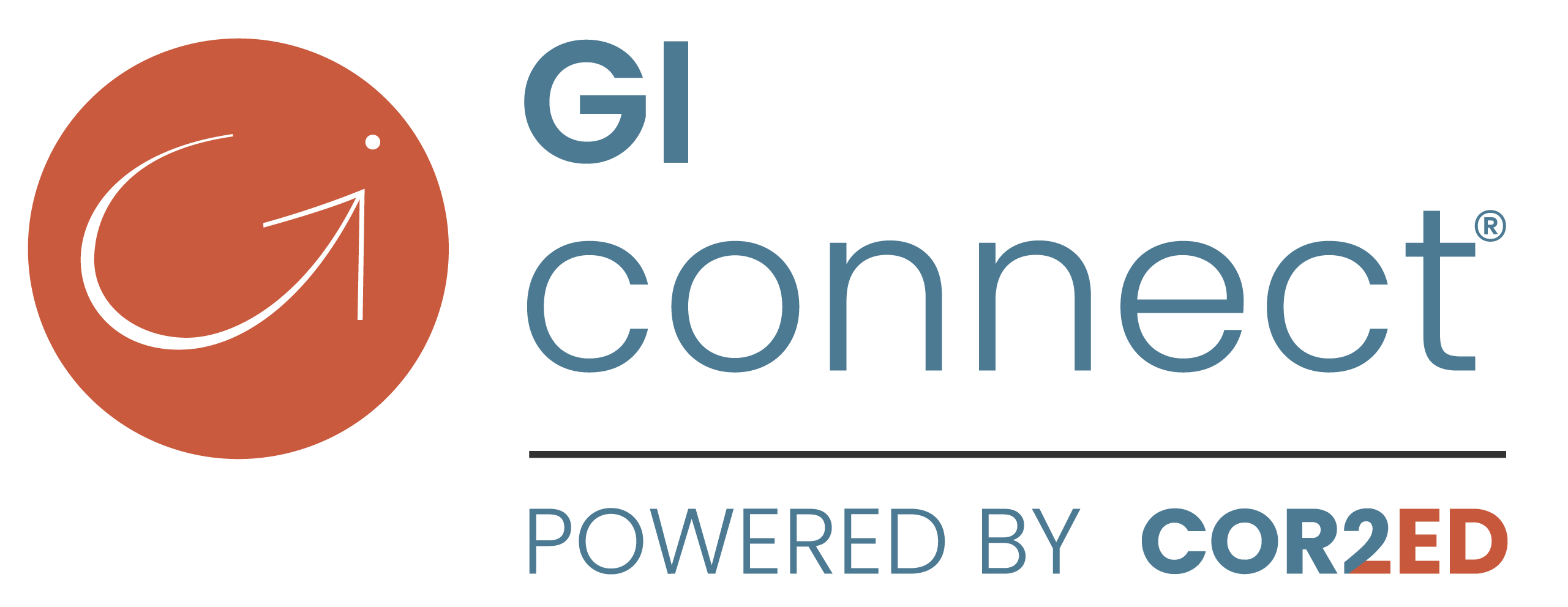GI CONNECT experts have reviewed practice-changing data on upper and lower GI cancer presented at ASCO 2024. Watch this short video update for the highlights.
Upper GI cancer
Dr Samuel Klempner and Dr Lizzy Smyth discuss:
- Prospective randomised multicentre phase 3 trial comparing perioperative chemotherapy (FLOT protocol) to neoadjuvant chemoradiation (CROSS protocol) in patients with adenocarcinoma of the oesophagus (ESOPEC trial). Hoeppner J, et al. Abstract LBA1, ASCO 2024
- Effect of chemotherapy/targeted therapy alone vs. chemotherapy/targeted therapy followed by radical surgical resection on survival and quality of life in patients with limited-metastatic adenocarcinoma of the stomach or oesophagogastric junction: The IKF-575/RENAISSANCE phase 3 trial. Al-Batran S-E, et al. Abstract LBA4001, ASCO 2024
- Ramucirumab plus paclitaxel as switch maintenance versus continuation of oxaliplatin-based chemotherapy in patients with advanced HER2-negative gastric or gastroesophageal junction cancer: The ARMANI phase 3 trial. Pietrantonio F, et al. Abstract LBA4002, ASCO 2024
Lower GI cancer
Dr Dominik Modest and Prof. Jenny Seligmann discuss:
- Chemotherapy and liver transplantation versus chemotherapy alone in patients with definitively unresectable colorectal liver metastases: A prospective multicentric randomised trial (TRANSMET). Adam R, et al. Abstract 3500, ASCO 2024
- Surgery versus thermal ablation for small-size colorectal liver metastases (COLLISION): An international, multicentre, phase 3 randomised controlled trial. Abstract LBA3501, Meijerink MR, et al. Abstract LBA3501, ASCO 2024
- NEOPRISM-CRC: Neoadjuvant pembrolizumab stratified to tumour mutation burden for high-risk stage 2 or stage 3 deficient-MMR/MSI-high colorectal cancer. Shiu K-K, et al. Abstract LBA3504, ASCO 2024
Clinical Takeaways
Upper GI
- Abstract LBA1: ESOPEC - perioperative chemotherapy (FLOT) and surgery improves overall survival compared to neoadjuvant chemoradiation (CROSS) plus surgery in patients with resectable oesophageal adenocarcinoma. FLOT is likely to be adopted as the standard approach for these patients.
- Abstract LBA4001: RENAISSANCE – the trial did not meet its primary endpoint and confirms that patients with limited metastatic disease of the stomach or gastroesophageal junction as defined by the FLOT3 trial have a favourable survival with chemotherapy/targeted therapy, but this is independent of surgical therapy.
- Abstract LBA4002: ARMANI - Switch maintenance with paclitaxel plus ramucirumab after 3 months of oxaliplatin-based doublets significantly improved PFS and OS compared to continuation of oxaliplatin-based chemotherapy in patients with HER2-negative metastatic gastric/GEJ cancer and may be a new strategy in patients who are not eligible for upfront treatment with immune checkpoint inhibitors. Treating providers need to monitor metastatic gastric/GEJ patients closely to ensure there is the opportunity for second line therapy, particularly in patients who are not eligible for upfront treatment with immune checkpoint inhibitors.
Lower GI
- Abstract 3500: TRANSMET – liver transplantation plus chemotherapy significantly improves the survival of selected patients with unresectable colorectal liver metastases compared to chemotherapy alone; and offers a potential of cure to cancer patients with otherwise poor long-term outcome.
- Abstract LBA3501: COLLISION – the study results suggested that transitioning from surgical resection to thermal ablation as standard of care for patients with small-size (≤3 cm) colorectal liver metastases would reduce complications, shorten hospital stay and improve local control, without compromising disease-free and overall survival.
- Abstract LBA3504: NEOPRISM – 9 weeks of neoadjuvant pembrolizumab is effective in downstaging high risk stage 2 or 3 dMMR/MSI-H CRC with a pathological complete response rate of 59%. No patients had relapsed disease after a median follow-up of 9.7 months.
- Abstract LBA3512: PD-1 blockade for 6-months with dostarlimab in patients with dMMR locally advanced rectal cancer showed that all patients who completed treatment achieved a complete response, without the need for chemotherapy, radiation, or surgery.







 Downloadable
Downloadable  20 MIN
20 MIN
 Feb 2026
Feb 2026 








